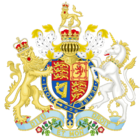Criminal Law and Procedure (Ireland) Act 1887 facts for kids
| Act of Parliament | |

|
|
| Long title | An Act to make better provision for the prevention and punishment of Crime in Ireland, and for other purposes relating thereto. |
|---|---|
| Citation | 50 & 51 Vict. c. 20 |
| Dates | |
| Royal assent | 19 July 1887 |
|
Status: Partially repealed
|
|
The Criminal Law and Procedure (Ireland) Act 1887 was a law passed by the Parliament of the United Kingdom. This Act changed the laws in Ireland to give more power to the police and government officials. It was introduced by Arthur Balfour, who was the main government official for Ireland at the time. The Act was meant to help control problems related to land ownership and other unrest in Ireland, especially during a time known as the Land War.
People often called this law the Crimes Act or Irish Crimes Act. It was also known as the Perpetual Crimes Act because it was a permanent law, unlike earlier similar laws that were only temporary. Another nickname was the Jubilee Coercion Act, because it was passed in 1887, the year Queen Victoria celebrated her Golden Jubilee (50 years as queen).
Contents
How the Act Was Used
This law gave the Lord Lieutenant of Ireland (the British government's representative in Ireland) special powers. The Lord Lieutenant could officially announce that certain areas in Ireland were "proclaimed areas." The new rules of the Act would then apply only in these specific areas.
Trials Without Juries
One big change was that certain actions, especially those connected to land disputes, could be tried by a judge (called a magistrate) without a jury. This meant that cases could be decided more quickly.
In September 1887, a protest happened in Mitchelstown. People were upset because two men, including a Member of Parliament named William O'Brien, were found guilty under this new Act. During the protest, members of the Royal Irish Constabulary (RIC), which was the police force, fired into the crowd. Three people were killed. When Arthur Balfour defended the police in the British Parliament, O'Brien called him "Bloody Balfour."
Banning Groups
The Act also allowed the Lord Lieutenant to declare certain groups "dangerous" and ban them. Many important Irish groups were banned using this power. For example:
- The Irish National League was banned in August 1887.
- Later, groups like Sinn Féin, the Irish Volunteers, Cumann na mBan, and the Gaelic League were also declared dangerous and banned in different parts of Ireland between 1918 and 1919.
When the Act Ended
Irish politicians who wanted Ireland to be independent often tried to get this Act removed.
In 1907, an Irish politician named Michael Hogan argued in Parliament that the Act was unfair and should be ended right away. The government at the time, led by Henry Campbell-Bannerman, agreed. The motion to repeal the Act passed by a large vote. A bill to remove the Act completely even passed some stages in Parliament in 1908.
Repeal in Ireland
In the Republic of Ireland, the Act was finally removed from the law books in 1983 by the Statute Law Revision Act 1983.
Repeal in the United Kingdom
For Northern Ireland, which is part of the United Kingdom, parts of the Act were removed by the Northern Ireland (Emergency Provisions) Act 1973.
 | John T. Biggers |
 | Thomas Blackshear |
 | Mark Bradford |
 | Beverly Buchanan |

